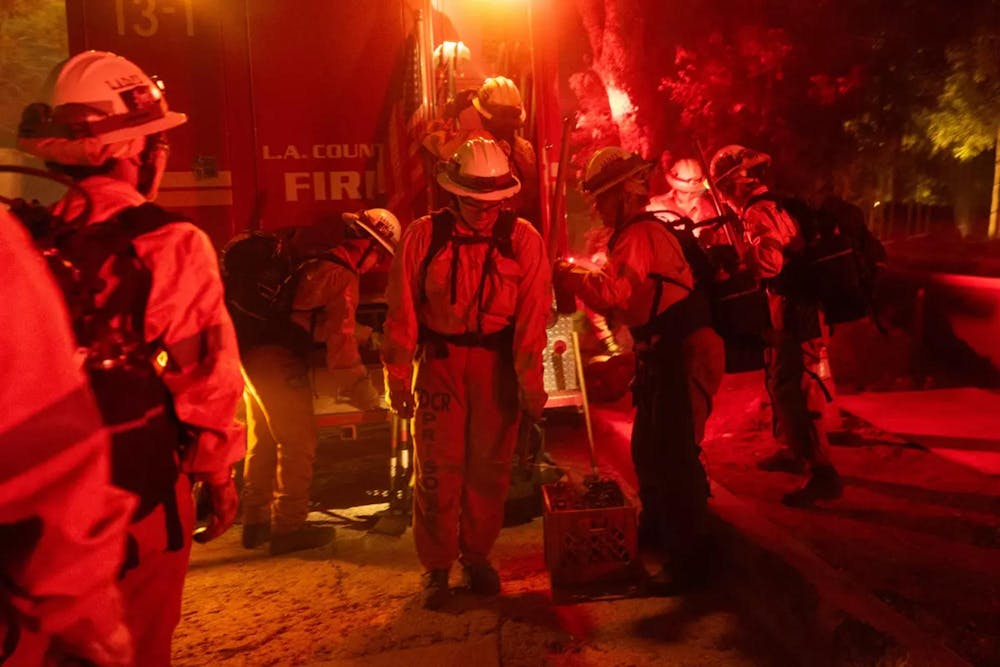As unprecedented wildfires rage in Southern California, many eyes are on the people on the front lines of disaster relief — incarcerated firefighters.
Over 1,100 responding firefighters are California inmates. While their essential work is an exploitation of their incarcerated status, what we’re not talking about enough are the conditions in the Thirteenth Amendment that have allowed states to take advantage of their prisoners for little or even no pay. It shouldn’t require a large natural disaster to occur to have these conversations.
The California Department of Corrections and Rehabilitation oversees the Conservation (Fire) Camps Program at the heart of this issue. CDCR operates 35 camps across the state with a goal to “support state, local and federal government agencies as they respond to emergencies including fires, floods, and other natural disasters.”
Through their voluntary participation in the Conservation Camps Program, California Assembly Bill No. 2147 grants inmates the opportunity to have their records expunged, allowing them to seek employment opportunities following their release. In order to qualify for the program, participants must be on a minimum security designation with less than eight years remaining on their sentence as well as some other requirements.
Beside the goals of the CDCR, one thing is glaringly obvious: inmates’ labor is barely compensated. Volunteers in the program earn between $5.80 to $10.24 per day with an extra $1 per hour during active fires. Consequently, incarcerated firefighters can work a 24-hour shift and not even break $30.
This discrepancy between incarcerated firefighters’ essential, dangerous work and their compensation has led many to call out the program’s exploitative nature. Amid the crisis, California State Representative Isaac Bryan authored a bill to compensate inmates at an hourly rate equal to the lowest-paid, non-incarcerated firefighter. According to Bryan, incarcerated firefighters are “heroes”. But because of the Thirteenth Amendment and its progeny, they’re not.
Ratified in 1865, the Thirteenth Amendment of the U.S. Constitution declares, “Neither slavery nor involuntary servitude, except as a punishment for crime whereof the party shall have been duly convicted, shall exist within the United States, or any place subject to their jurisdiction.” That clear exception, protecting slavery in prisons, is why the United States is able to exploit cheap labor to produce $2 billion in goods and $9 billion in services per year.
To be clear, the Conservation Camps Program is not compulsory — in fact, many participants view it as a great opportunity to give to their community and prove they can rehabilitate in a more forgiving environment than the prison yard.
However, when you’ve been given little chance to rehabilitate, even the most exploitative program can seem rewarding if it offers a sense of dignity. Prison labor that is not properly compensated, whether that is rescuing a community from a fire or manufacturing goods in a factory, should be seen and treated as a fundamental violation of one’s rights.




